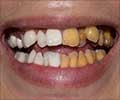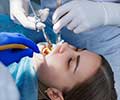Genetic variation in taste pathway genes (TAS2R38, TAS1R2, GNAT3) may be associated with dental caries risk and/or protection, a new study has revealed.
Genetic variation in taste pathway genes (TAS2R38, TAS1R2, GNAT3) may be associated with dental caries risk and/or protection, a new study has revealed.
According to researchers from University of Pittsburgh and West Virginia University, dental caries occurrence and progression is known to be influenced by a complex interplay of both environmental and genetic factors, with numerous contributing factors having been identified including bacterial flora, dietary habits, fluoride exposure, oral hygiene, salivary flow, salivary composition, and tooth structure.In this study, families were recruited by the Center for Oral Health Research in Appalachia (COHRA) for collection of biological samples, demographic data and clinical assessment of oral health including caries scores.
Multiple single nucleotide polymorphism (SNP) assays for each gene were performed and analyzed using transmission disequilibrium test (TDT) analysis (FBAT software) for three dentition groups: primary, mixed, and permanent. Statistically significant associations were seen in TAS2R38 and TAS1R2 for caries risk and/or protection.
The article has been published in the Journal of Dental Research titled "Taste Genes Associated with Dental Caries".
Source-ANI
 MEDINDIA
MEDINDIA




 Email
Email






